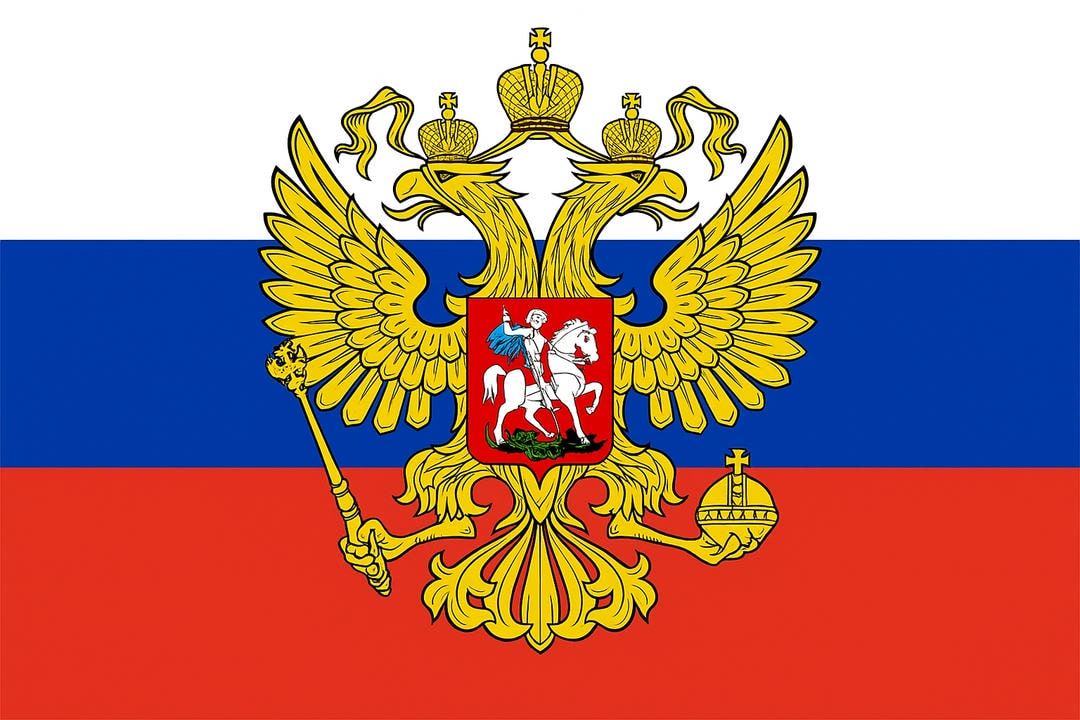Popular Russian expressions serve as linguistic artifacts that reveal much about the nation’s historical experiences and cultural priorities. Each idiom encapsulates nuanced social attitudes—ranging from cynicism about deception to pragmatic views on effort and reward. These phrases offer more than mere communication; they provide insight into collective values and everyday realities. Examining their origins and meanings uncovers layers of cultural significance, inviting a deeper understanding of Russian social dynamics and worldview.
Russian Idioms: Windows into Language, Culture, and History

Russian idioms often go unnoticed in everyday conversation, yet they are powerful cultural artifacts that reveal the rich interplay between language, history, and societal values. These expressions serve as more than just colorful phrases—they offer a unique path to understanding Russia’s collective mindset, historical experiences, and social dynamics.
Mastering Russian idioms provides learners with deeper insight into communication subtleties that often get lost in direct translation. They enrich language learning by illuminating cultural nuances, enabling learners to engage authentically with Russian speakers and texts. Ultimately, Russian idioms act as bridges connecting past and present, enhancing intercultural dialogue and fostering a more nuanced appreciation of Russian identity.
The Cultural and Historical Significance of Russian Idioms
Russian idioms and expressions are compact vessels loaded with layers of meaning, serving as windows into the nation’s collective psyche. These phrases often encapsulate societal values, shared experiences, and historical contexts through vivid, memorable metaphors. Their development mirrors Russia’s complex history, stretching from the imperial era through the Soviet period and into contemporary society, each phase leaving its distinct imprint on language and culture.
Many Russian idioms originate from specific historical events, social customs, or everyday life in different epochs. For example, idioms from the Tsarist period often reflect the hierarchical and agrarian nature of society, while those that emerged during the Soviet era frequently carry undertones of political ideology, censorship, and collective struggle. Some expressions even preserve remnants of older Slavic pagan beliefs or Orthodox Christian traditions, reflecting a blend of religious and folk influences.
Through times of political upheaval—such as the Russian Revolution, World War II, and the Cold War—idioms adapted to express both official propaganda themes and subtle dissent. For instance, phrases like “работать спустя рукава” (to work with sleeves rolled down, meaning to work carelessly) might have gained popularity in critiques of Soviet bureaucracy or inefficiency.
Russian idioms often act as a form of social commentary embedded in everyday conversation. They convey attitudes toward authority, fate, perseverance, and community in a way that is both accessible and nuanced. Many idioms use humor or irony to critique social norms or political conditions without direct confrontation—an important feature in a culture where open criticism was frequently risky.
For example, the idiom “без царя в голове” (literally “without a tsar in the head”) describes someone who is foolish or lacks common sense. This phrase reflects historical reverence for leadership while simultaneously highlighting individual shortcomings. Similarly, “пустить пыль в глаза” (to throw dust in the eyes) refers to deception or misleading appearances, a phrase that resonates deeply in contexts where truth was often obscured by propaganda.
The linguistic roots of Russian idioms reveal the diversity of cultural contacts Russia has experienced. Many borrowings come from Turkic languages, French, German, and other neighbors due to trade, invasion, and diplomacy. This linguistic blending enriches idiomatic expressions, making them not only culturally but also linguistically significant.
Studying these idioms offers a unique lens for understanding how Russians perceive their world—highlighting values such as resilience (“терпение и труд всё перетрут” — patience and work will grind everything down), pragmatism, and a sometimes dark sense of humor that helps cope with hardships.
![]()
Why Russian Idioms Matter to Learners and Cultural Explorers

For foreigners learning Russian, idioms are crucial tools for achieving genuine and effective communication. Unlike straightforward vocabulary, idiomatic expressions carry rich cultural meanings and social nuances that often cannot be fully understood through direct translation. Ignoring idioms can lead to misunderstandings, missed jokes, or failure to grasp irony—elements that are deeply woven into everyday Russian speech.
Russian idioms frequently appear not only in daily conversations but also in literature, music, film, and media. They act as cultural signposts, offering insights into the values, humor, and worldview of Russian speakers. Encountering an idiom in a novel or song provides more than just lexical meaning; it opens a window into the emotional tone and social context behind the words. By learning idioms, language students gain access to layers of meaning that enrich comprehension far beyond literal translations. This is especially important because Russian humor often relies on wordplay and cultural references embedded in idiomatic phrases.
Idiomatic expressions reflect typical Russian thought patterns, attitudes, and social behaviors. Engaging with these phrases helps learners internalize how Russians conceptualize ideas such as fate, perseverance, authority, and interpersonal relationships. This immersive process fosters empathy and a more nuanced understanding of the culture. For example, understanding the idiom “не всё коту масленица” (literally “not every day is Shrovetide for the cat,” meaning not every day is a holiday) reveals a cultural acceptance of life’s ups and downs that may differ from perspectives common in other cultures.
Mastering idioms empowers learners to sound more natural and fluent. It enables them to understand native speakers better, especially in informal settings where idioms are used extensively. Without this knowledge, conversations may feel stilted or alien, and learners might miss subtle cues or emotional undertones. Moreover, using idioms appropriately signals deep cultural competence and respect for the language’s richness, helping build rapport and trust in social interactions—whether personal or professional.
Russian idioms are far more than decorative language elements; they are essential keys to unlocking the heart of Russian culture and social interaction. For learners and cultural explorers alike, idioms bridge the gap between language and lived experience, allowing for authentic communication and deeper cultural insight.
Universal Themes Embedded in Russian Idioms
Russian idioms often capture universal human experiences like effort, truth, deception, and social values through vivid and concise imagery. Effort is commonly expressed using metaphors that emphasize perseverance and resilience, reflecting a cultural admiration for endurance and hard work in the face of challenges. Truth in Russian idioms can carry multiple layers of meaning, sometimes illustrating straightforward honesty but also hinting at skepticism or cautious realism shaped by historical and social contexts.
Deception frequently appears in expressions that subtly criticize cunning behavior or mistrust, often seen as necessary survival strategies in complex social environments. Social values are reflected in idioms that highlight the importance of community cohesion, respect for hierarchy, or moral lessons, revealing the ethical frameworks embedded within Russian culture.
Together, these themes demonstrate how language encodes shared struggles, attitudes, and principles that are uniquely Russian yet speak to universal human conditions. Through idioms, Russians express their worldview in ways that connect deeply with timeless human experiences while also reflecting the particularities of their history and society.
![]()
Understanding Russian Idioms
What Are Russian Idioms and Proverbs?
In Russian, idioms (идиомы) and proverbs (пословицы) are linguistic units whose meanings go beyond their literal words. They carry cultural wisdom, historical experience, and social commentary in compact phrases that preserve Russia’s linguistic heritage.
Difference Between Пословицы (Proverbs) and Поговорки (Sayings)
- Пословицы (Proverbs): Complete statements expressing moral lessons or universal truths. Example: “Без труда не вытащишь и рыбку из пруда” (“Without effort, you won’t catch a fish”).
- Поговорки (Sayings): Shorter phrases conveying an image or social observation without a direct lesson. Example: “Вешать лапшу на уши” (“To hang noodles on one’s ears” — meaning to deceive).
This distinction highlights how Russian language nuances shape everyday communication.
![]()
The Role of Idioms in Russian Speech and Literature
Idioms are central to both daily conversation and literary expression in Russia. They enrich language by adding emotional depth, vivid imagery, and cultural resonance. In literature, idiomatic expressions help authors depict social realities with nuance and humor.
For learners, mastering idioms bridges cultural gaps—facilitating authentic dialogue and deeper connection with Russian speakers. Idioms thus act as essential communicative tools shaping how Russians express ideas and emotions.
![]()
Origins of Popular Russian Expressions
Russian idioms have diverse origins shaped by historical events, cultural exchanges, professional jargon, criminal slang, geographic realities, and oral tradition.
French Influence in the 18th–19th Centuries
During the Enlightenment and Napoleonic eras, French culture heavily influenced Russian aristocracy. This led to the integration of French idiomatic patterns into Russian speech. For example:
- “Вешать лапшу на уши” (“To hang noodles on one’s ears”) means to deceive or flatter deceptively—a phrase linked to French influence on Russian slang.
This period marked a pivotal moment when Russian language absorbed foreign elements while adapting them to local realities.
Impact of Professional Jargon, Criminal Slang, and Historical Contexts
Russian idioms also draw from:
- Professional jargon: Specialized terms from trades infiltrate common speech.
- Criminal slang: Underground expressions add subversive layers.
- Historical events: Idioms reflect collective memories of political upheaval or social struggles.
Together, these sources contribute complexity and vibrancy to Russian idiomatic speech.
Influence of Russia’s Climate and Geography
Russia’s harsh climate and vast geography deeply influence its idioms—often symbolizing endurance against severe winters or referencing expansive natural features like forests and rivers. These idioms highlight a pragmatic worldview shaped by environmental challenges.
Oral Tradition and Literary Contributions

Oral storytelling has long preserved Russian idiomatic expressions. Literature has codified many of them—especially notable is Ilf and Petrov’s The Golden Calf, which immortalized several idioms reflecting Soviet-era satire.
Case Study: “На блюдечке с голубой каемочкой”
“On a Platter with a Blue Border”
This idiom symbolizes receiving something effortlessly or with entitlement. It critiques privilege and unearned advantage within Russia’s social structure.
- Origin: Popularized by Ilf and Petrov’s The Golden Calf, a satirical novel exposing Soviet bureaucracy.
- Meaning: To get something without effort or hassle.
- English Equivalent: “On a silver platter.”
Understanding this phrase offers insight into Russian attitudes toward merit, privilege, and fairness.
Other Notable Russian Idioms with Similar Themes
| Russian Idiom | Literal Translation | Meaning / Theme |
|---|---|---|
| Дело в шляпе | “The job is in the hat” | Certainty; task is done |
| Водить за нос | “To lead by the nose” | Deception; manipulation |
| Вот где собака зарыта! | “That’s where the dog is buried” | Discovering hidden truth |
| Ждать с моря погоды | “To wait for the weather from the sea” | Waiting in vain; futile hope |
| Игра не стоит свеч | “The game isn’t worth the candles” | Not worth the effort |
Brief Insights:
- Дело в шляпе: Expresses confidence that success is assured.
- Водить за нос: Highlights social awareness of deception tactics.
- Вот где собака зарыта!: Used when uncovering the root cause of an issue.
- Ждать с моря погоды: Critiques passive waiting without action.
- Игра не стоит свеч: Warns against wasting effort on unprofitable ventures.
These idioms reflect core social attitudes toward effort, trust, truth, patience, and pragmatism.
 The Cultural Power of Russian Idioms
The Cultural Power of Russian Idioms
Russian idioms are far more than linguistic curiosities—they are living records of cultural history, social values, and collective mentality. They enrich communication by embedding complex ideas in vivid metaphors that resonate across time. For learners and cultural enthusiasts alike, exploring these expressions opens doors to authentic understanding of Russia’s language and people.
Mastering Russian idiomatic language offers innovative perspectives on universal human experiences through a uniquely Russian lens—deepening intercultural connections while preserving the vibrant heritage encoded in every phrase.




